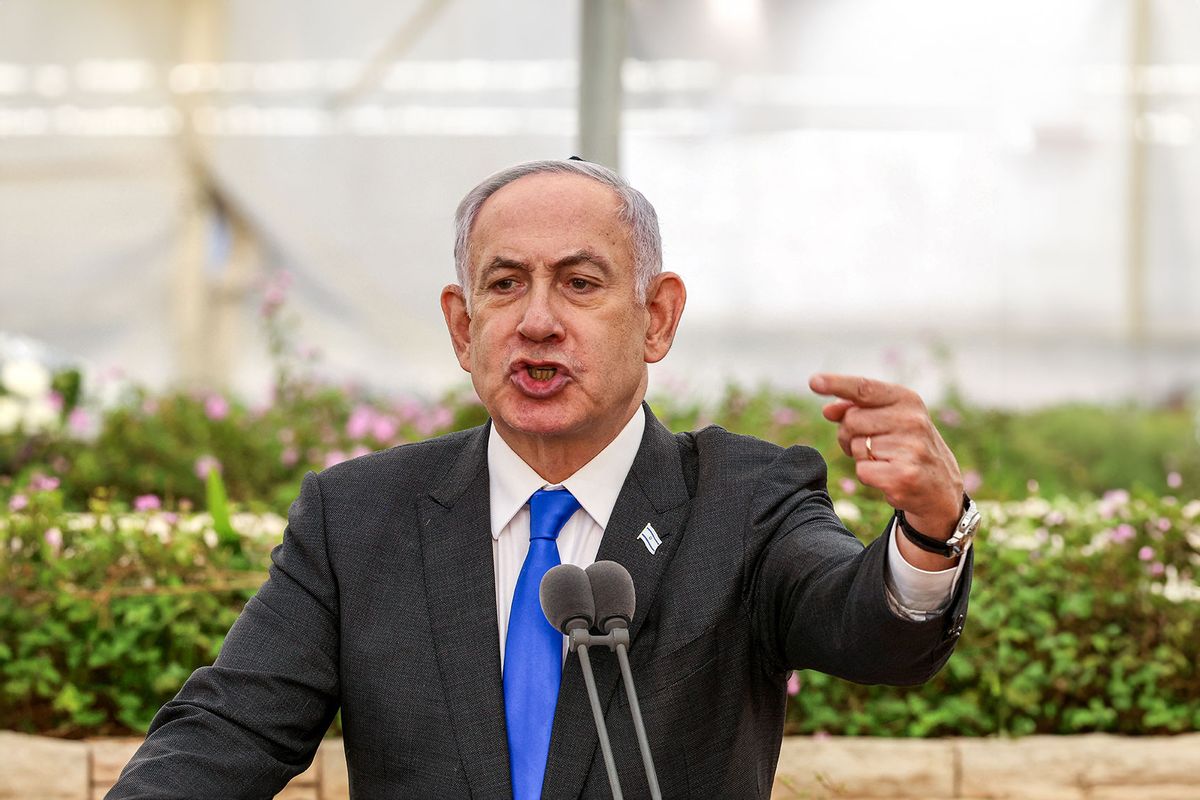Israeli Prime Minister Benjamin Netanyahu said on Monday that he is committed to a proposal crafted by members of his own government for a hostage and ceasefire deal in Gaza, after previously disavowing it as not favorable enough for Israel.
Earlier in June, President Joe Biden announced a three-phase proposal, later endorsed by the United Nations Security Council, that he said was outlined by Israeli negotiators and passed to Hamas via Qatari intermediaries. According to the stated proposal, Israel would withdraw all military forces from Gaza while Hamas returned women and children hostages as a six-week ceasefire took effect. A full ceasefire would follow, resulting in the release of all Hamas-held hostages and Israeli-held Palestinian political prisoners taken before and after the October 7 attacks.
While Netanyahu acknowledged that the outline was authorized by his war cabinet, he also distanced himself from it, insisting that a ceasefire was not possible without first effecting the "complete destruction" of Hamas. Senior Israeli officials characterized Biden's statements of Israel's position as "inaccurate," while Israeli forces continued to assault and bombard Rafah, where many Palestinian civilians had sought refuge.
Hamas signaled guarded openness to the deal, but proposed numerous changes and stressed that they would only countenance an agreement that guaranteed a permanent ceasefire and a full Israeli withdrawal from Gaza. Israeli officials have said that Hamas' counter-offers are unacceptable and unreasonable, arguing it is effectively a rejection of the ceasefire proposal.
Netanyahu's refusal to endorse the deal pleased his right-wing coalition partners, who had threatened to leave the government if it was accepted, while frustrating US officials and further inflaming opposition at home and abroad. Israeli protesters, including family members of hostages, have accused Netanyahu and the Israeli government he leads of slaughtering Palestinian civilians and endangering the lives of the remaining hostages by further delaying a ceasefire.
As late as Sunday, Netanyahu was hardening his stance, expressing interest only in a "partial deal" that would free some hostages but allow Israel to keep fighting and "mowing the grass" in Gaza. Hamas responded that this was proof of US and Israeli insincerity and Netanyahu's intention to continue the war.
US and Israeli officials have told news outlets that Netanyahu's remarks on Sunday were a mistake, and that the prime minister himself agreed that a clarification was in order. By Monday, Netanyahu appeared to have softened his opposition, while insisting that his position had always been consistent.
"I promise you ... we will not end the war until we return all of our hostages — 120 hostages, the living and the deceased," he said before the Israeli Knesset. "We are committed to the Israeli proposal, which President Biden has welcomed. Our position has not changed." In the same speech, however, Netanyahu maintained that Israel would not end the war until Hamas was destroyed.



Shares